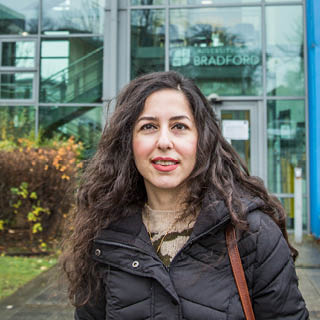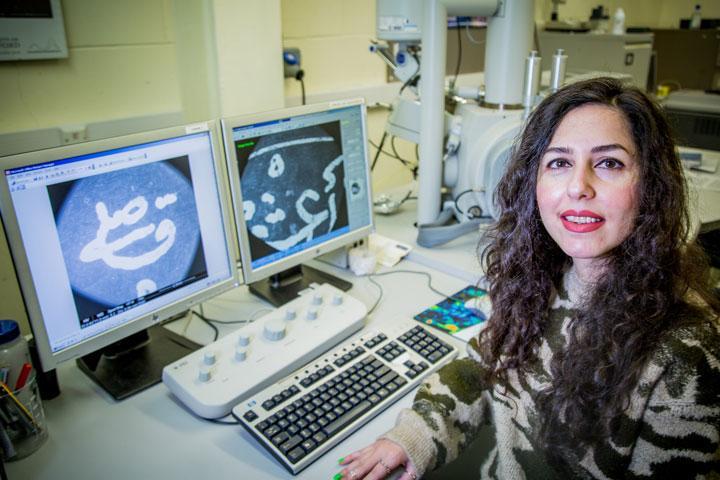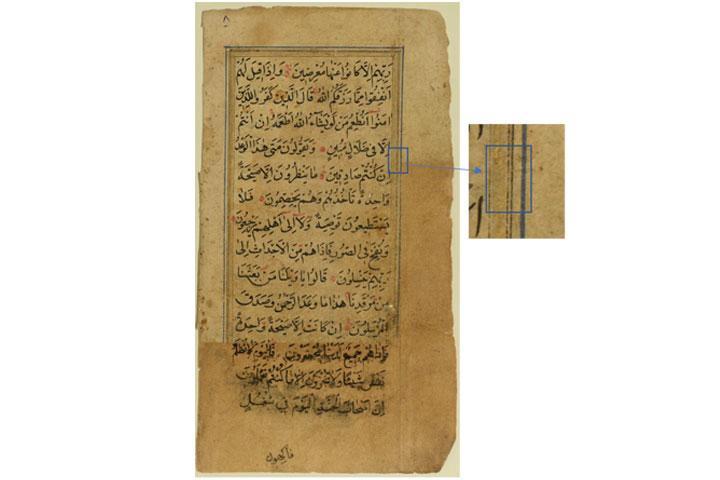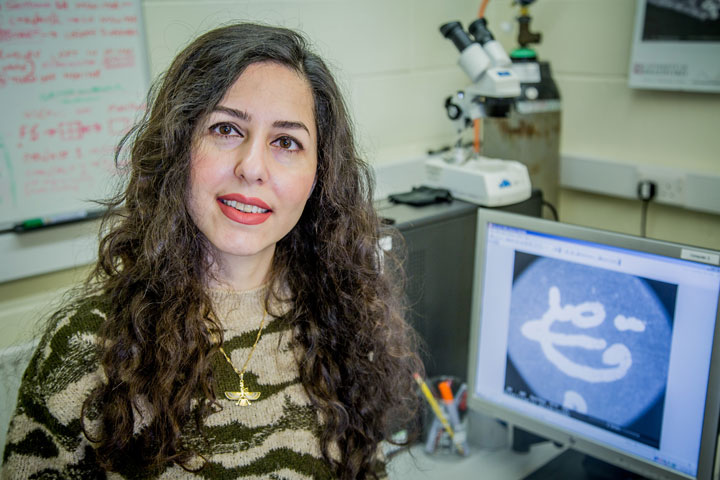
Maedeh
MSc Archaeological Sciences
Maedeh travelled from Iran to study Archaeological Sciences in Bradford. Her project focused on Codicology - the material study of manuscripts.
She plans to study a PhD in Australia after completion of her Master's.
Interested in
MSc Archaeological Sciences?
Why I chose Bradford
"I was planning to do my Master's degree in the UK as an international student.
"I wanted to expand my knowledge in different areas of archaeology, and Bradford was the only university to include such detailed applications of modern scientific methods and practices in its programme.
"For me, this level of training was very important and was necessary for my progression so I could develop and improve my future research work."

I chose Bradford because of the reputation of its MSc Archaeological Sciences degree and because it offered the best module combination.
Maedeh Darzi
Developing knowledge and skills
"I have learnt so much during my Master's at Bradford!
"I've had the chance to expand my area of knowledge, develop analytical skills and learn how to deal with complex problems in a more systematic way.
"The course has encouraged me to work independently and expand my own ideas and data, so I've really developed in all areas of mainstream archaeology and in my abilities as a researcher."
Codicology - the material study of manuscripts
"For my project, I worked on manuscripts from the Qajar period (ca. 18-19 century AD) in Iran. They were granted to me by the Codicological Institute of Iran for the material study of inks without destroying samples.
"The manuscripts were written in black ink and illuminated with red, blue and golden colours.
"I used analytical methods to analyse ink used in the text and illumination to identify and characterise which kind of materials the calligrapher/artist used in that period to write and decorate the manuscript.
"This is called codicology, meaning the material study of the manuscript.

Spectroscopic methods
"For my codicology work I used the following spectroscopic methods:
- Synchrotron-based Fourier-Transform Infrared Spectroscopy (FTIR)
- Raman Spectroscopy
- Scanning Electron Microscopy-Energy Dispersive X-ray
"I did synchrotron-based FTIR at a synchrotron facility in Jordan called SESAME (Synchrotron Light for Experimental Science and Application in the Middle East) under a grant I received.
"Then I did Raman Spectroscopy and Scanning Electron Microscopy-Energy Dispersive X-ray here at the University of Bradford."
Chevening scholarship
"Bradford has a long-standing relationship with the Chevening Scholarship Programme - the UK government's global postgraduate scholarship scheme which is awarded to outstanding students.
"Thousands of applications are submitted every year from over 100 countries worldwide, so I knew it would be a very competitive and challenging process - I was so fortunate to be granted a scholarship.
"Chevening helped me with all of the financial costs associated with my studies at Bradford."
"The scholarship is fully-funded so my flights, university accommodation and course fees are all included. This means I am privileged to focus on my degree, the experience, and achieving my academic goals.
"Once I'd submitted my application, it took eight months for me to hear whether I'd been selected for an award.
"When I received the letter to say I had been successful I was so thrilled and grateful. Words cannot express how proud I felt, and my family were delighted for me too."
I feel so much pride in my achievements so far. I have already achieved more than I expected.
Maedeh Darzi
A PhD opportunity in Australia
"After graduating I'm going to Flinders University in South Australia.
"I've got a wonderful PhD entitled "Ochre Archaeomicrobiology", to study Australian Aboriginal movement and their cultural exchange within the Australia continent."

